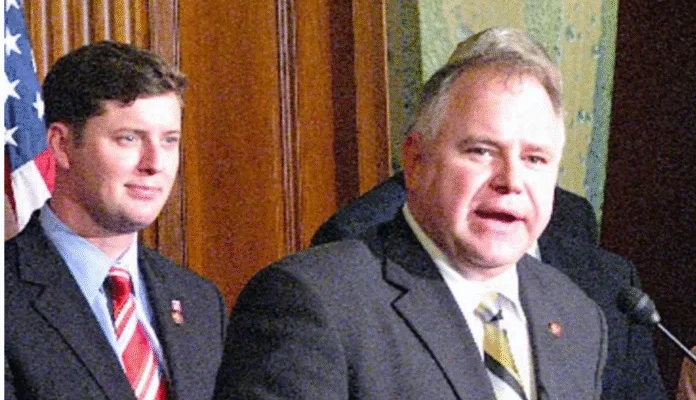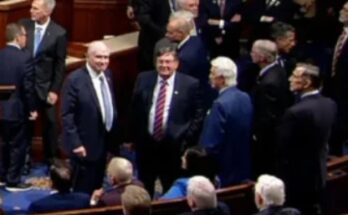Minnesota Governor Tim Walz has been formally issued a subpoena by the U.S. House Committee on Education and the Workforce, chaired by Representative Virginia Foxx (R-NC), as part of an ongoing investigation into the widespread Feeding Our Future (FOF) scandal. This federal probe is centered on the alleged misappropriation of approximately $250 million from the Federal Child Nutrition Program during the COVID-19 pandemic—a program intended to provide meals to low-income children during school closures. Instead, according to investigators, the funds were fraudulently siphoned off by various organizations operating under the oversight of the state government.
The Minnesota Department of Education (MDE), which was responsible for administering the program within the state under Governor Walz’s leadership, has come under intense scrutiny for its failure to detect and stop the fraud. Critics, including members of Congress, allege that MDE did not implement adequate oversight mechanisms and failed to flag suspicious activity, thereby enabling one of the largest fraud operations in Minnesota’s history. The subpoena issued by the Committee compels the Walz administration to produce a wide range of documents, including internal communications, records of correspondence with federal agencies, and reports related to any investigations or actions taken by MDE before, during, or after the fraud was uncovered.
Chairwoman Foxx has been particularly critical of the governor’s role, accusing Walz and senior state officials of negligence and a lack of urgency in preventing the fraud. She contends that the state government had sufficient information and authority to intervene earlier but failed to act decisively, allowing the fraudulent activities to continue and expand. In her official letter accompanying the subpoena, Foxx argued that the scale of the fraud fell squarely within the Committee’s jurisdiction and signaled that Congress may pursue new federal legislation to strengthen oversight and accountability within nutrition assistance programs.
Governor Walz has publicly responded to these allegations, denying any personal or administrative wrongdoing. In statements made in June 2024, Walz acknowledged that some employees within the Minnesota Department of Education may have failed to exercise the level of due diligence required under the circumstances. However, he firmly rejected any suggestion of intentional misconduct or willful negligence by his administration. Walz defended his administration’s actions, pointing out that the pandemic posed unprecedented challenges, which complicated oversight and increased the likelihood of opportunistic fraud. The governor, who was previously considered a potential Democratic vice presidential candidate, maintained that his administration acted in good faith and cooperated fully with federal authorities when the fraud came to light.
The political stakes of the investigation have grown even higher with the recent conviction of Guhaad Hashi Said, a Minnesota nonprofit operator with known ties to Congresswoman Ilhan Omar (D-MN). Said pleaded guilty to laundering nearly $2.9 million through his organization, becoming the 52nd person convicted in the Feeding Our Future case. Federal prosecutors allege that these individuals collectively exploited gaps in the federal nutrition program, submitting fraudulent claims for meals that were never served to children.
Acting U.S. Attorney Joseph H. Thompson underscored the gravity of the situation, calling it one of the most extensive fraud cases the state has ever faced. He emphasized that the final conviction in the series of prosecutions should serve as a wake-up call about the systemic weaknesses in Minnesota’s administration of federally funded aid programs. According to Thompson, the scandal revealed a critical failure in the state’s ability to monitor and safeguard federal resources intended for vulnerable populations during a national crisis.
The investigation and subpoena of Governor Walz now represent a turning point in the broader political and legislative response to the scandal. As the House Committee continues its inquiry, lawmakers have indicated that the findings could pave the way for reforms aimed at preventing similar abuses in future iterations of the Federal Child Nutrition Program. Whether this leads to substantial changes in federal oversight, or political consequences for Minnesota’s leadership, remains to be seen—but the ripple effects of the Feeding Our Future scandal are clearly far from over.



